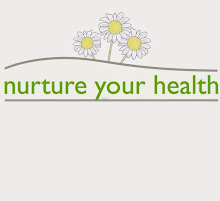 I attended the AANP 2019 conference in Portland this past weekend and I learned lots of great info including:
I attended the AANP 2019 conference in Portland this past weekend and I learned lots of great info including:
From Carrie Jones' lecture on estrogen detox, Phase 1 liver detox (via cytochrome P450) is dependent on healthy iron levels, so those of us with low iron have compromised liver detox - another reason to ensure our iron levels are well balanced (for women a balanced ferritin is between 100 - 150). Also indole 3 carbinol supplements depend on healthy stomach acid to be broken down into their more active counterpart, DIM. Because low stomach acid, proton pump inhibitor/gerd medication dosing, and tums usage is quite pervasive, taking DIM rather than indole 3 carbinol is a better choice.
From Michael Traub's lecture on SIBO (Small Intestinal Bacterial Overgrowth), SiBO can present without any digestive symptoms, this is especially seen with rosacea. Also within hours of a traumatic brain injury (TBI), including concussion, there is disruption of the normal vagal innervation of the small intestine and a significant increase in intestinal permeability. Because of this, TBI is a major risk factor for SIBO.
 From Nirala Jacobi's lecture on SIBO, methane based SIBO is less commonly associated with a previous episode(s) of food poisoning. Also integrating 2 Kiwi fruit per day can increase digestive motility and is also a low FODMAP food (so easier on the digestive system in general and during/post SIBO treatment). People with elevated methane at baseline and then no significant increase on their SIBO breath test fit into the category of methane positive constipation (IBS-C) and respond better to a more vegetarian based SIBO/bi phasic diet. Tofu, tempeh, and miso are all generally low FODMAP veggie foods and can be part of this protocol.
From Nirala Jacobi's lecture on SIBO, methane based SIBO is less commonly associated with a previous episode(s) of food poisoning. Also integrating 2 Kiwi fruit per day can increase digestive motility and is also a low FODMAP food (so easier on the digestive system in general and during/post SIBO treatment). People with elevated methane at baseline and then no significant increase on their SIBO breath test fit into the category of methane positive constipation (IBS-C) and respond better to a more vegetarian based SIBO/bi phasic diet. Tofu, tempeh, and miso are all generally low FODMAP veggie foods and can be part of this protocol.
From John Neustadt's lecture on sleep, the average optimal length to sleep is now considered to be 8.2 hours per night, but the average is actually 6.9 hours per night. As well, the use of blue screen e readers before bed is associated with having a harder time to fall asleep, taking hours to feel refreshed in the morning, and it also reduces/delays melatonin production. If we are waking at the same time every night, it is often related to low blood sugar and eating 8 -10 g of protein before bed can be helpful.
From Decker Weiss' lecture on cardiology, hot flashes are related to not only lower estrogen but also lower serotonin (via causing inflammation in the lining of the vessels which makes us more prone to hot flashes/vascular instability).
From Eric Yarnell's lecture on herbal medicine, both eleutherococcus and boswelia are over harvested herbs that aren’t currently being grown/worked with sustainably and it is best to move away from working with these herbs.








